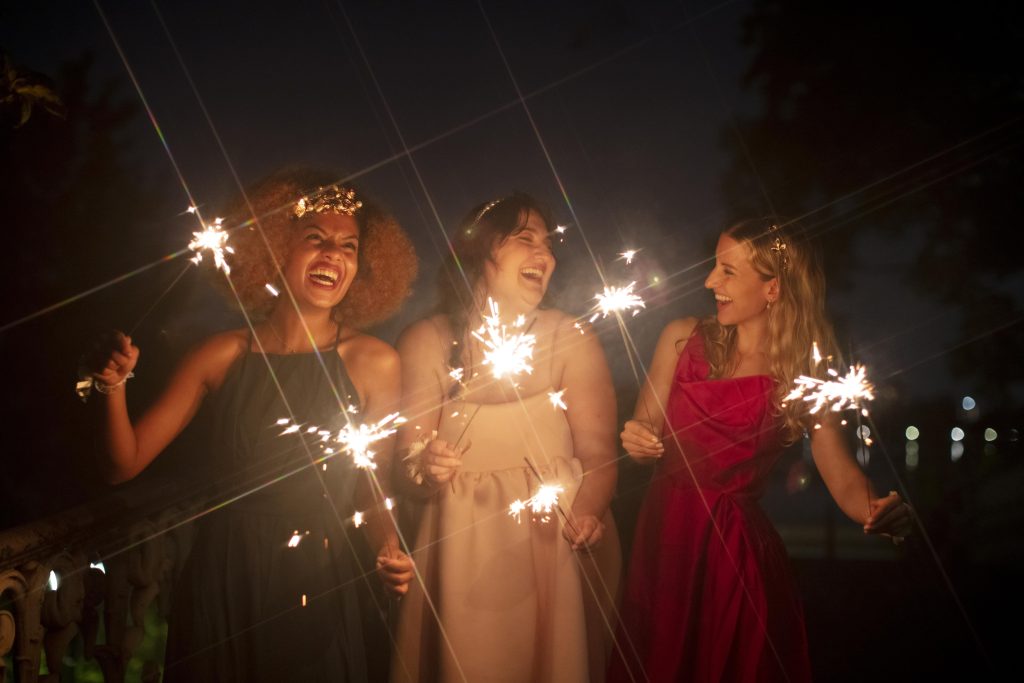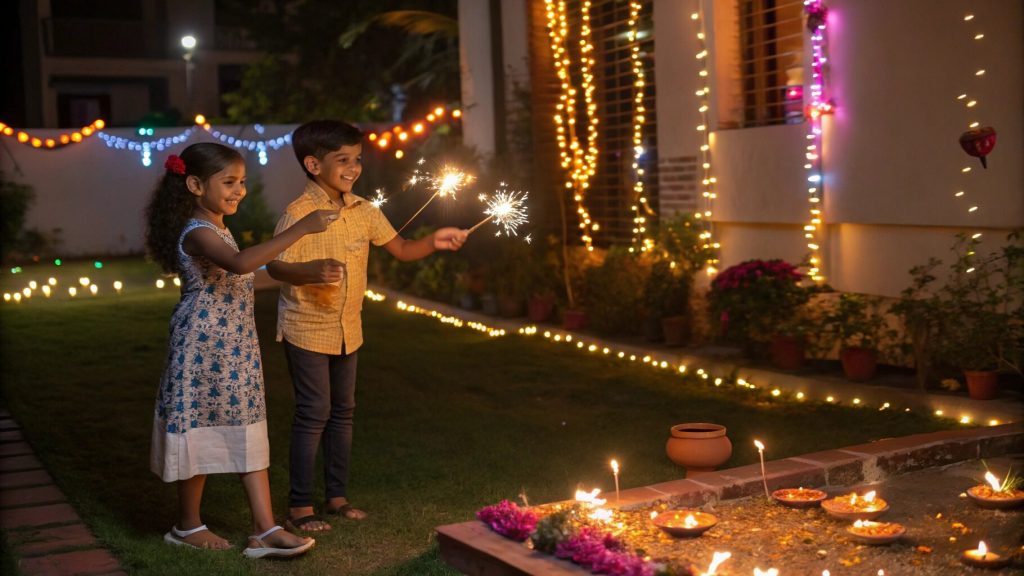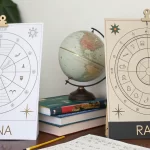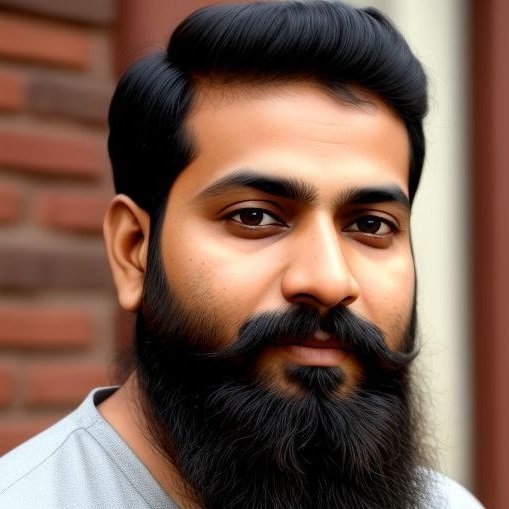Top Popular Festivals in India You Must Experience
Aryan K | July 8, 2024

Eager to explore the most celebrated festivals in India? This guide dives into the most popular and famous festivals in India, such as the Pongal festival of South India and the Holi festival, unveiling their unique traditions, cultural importance, and when they take place. It will also cover traditional harvest festivals celebrated in various regions of India, such as Tamil Nadu, Arunachal Pradesh, and Kerala. Perfect for travelers and cultural enthusiasts alike, discover where and when to experience India’s most vibrant festivities
Key Takeaways
Indian festivals, celebrated from September to January, showcase the country’s vibrant cultural diversity and foster unity among its people through unique traditions and communal joy.
Major national festivals like Republic Day, Independence Day, and Gandhi Jayanti are celebrated with notable enthusiasm, highlighting India’s rich history, cultural heritage, and values of patriotism and non-violence.
Prominent religious and regional festivals, such as Hindu festivals like Diwali, Makar Sankranti, Durga Puja, as well as cultural festivities like the Goa Carnival and the Jaipur Literature Festival, offer a deep dive into India’s varied cultural, spiritual, and artistic landscapes.
The article also covers various types of festivals, including traditional harvest festivals celebrated in different regions of India, such as Tamil Nadu, Arunachal Pradesh, and Kerala. These festivals involve rituals like cooking special dishes, worshipping deities, making
Top Popular Festivals in India You Must Experience
India’s festivals are as vibrant and varied as its landscape. Whether you’re a traveler planning your next adventure or a cultural enthusiast, experiencing Indian festivals is a must. The peak festival season from September to January sees a flurry of celebrations, each marked by unique traditions and communal joy. Many of these celebrations are Hindu festivals, deeply rooted in religious traditions and cultural practices. These festivals, deeply rooted in the lunar calendar, bring together people from different castes, religions, and regions, fostering unity and cultural exchange.
Picture the streets thrumming with activity, as individuals in vibrant clothing engage in processions and share festive meals. From the grandeur of national celebrations to the intimate gatherings of regional celebrated festivals, each event offers a unique cultural experience. Organizing your travel itinerary around these festivals can be extraordinarily enriching. To stay informed about dates and events, consider checking online resources or official tourism websites.
Harvest festivals in India, such as those in Tamil Nadu, Arunachal Pradesh, and Kerala, are significant cultural events. These festivals involve rituals like cooking special dishes, worshipping deities, making rangolis, and praying for a successful harvest. They symbolize gratitude for the harvest and are marked by various cultural activities and gatherings, reflecting the rich traditions of each region.
A fascinating aspect of Indian festivals is their capacity to bridge social divides. These celebrations offer a sense of belonging and shared joy, making them a crucial part of the Indian social fabric. Whether it’s the lighting of lamps during Diwali or the communal feasts of Eid, Indian festivals are a testament to the country’s cultural diversity and unity.
Introduction
India’s vast and diverse cultural landscape is mirrored in its festivals, which are celebrated with great enthusiasm across the country. These festivals are a mix of national, regional, and community-specific events, each with its unique charm and significance, making them some of the most famous festivals in the world. From the grand Republic Day parade to the colorful celebrations of Onam, Indian festivals offer a glimpse into the country’s rich heritage and varied culture.
The allure of these festivals stems from their vast diversity. While some are rooted in religious beliefs, others mark historical events or seasonal changes. Harvest festivals are also an integral part of India’s cultural celebrations, reflecting the agricultural roots of the country. Regardless of the occasion, each festival is celebrated with a sense of community and shared joy. The local language, customs, and traditions add a unique flavor to these celebrations, making them key attractions for both locals and tourists alike.
Major National Festivals of India
National festivals in India hold a special place in the hearts of its people. These important festivals are not only a time for celebration but also a reminder of the country’s rich history and the values it upholds.
Republic Day, Independence Day, and Gandhi Jayanti—the three national festivals—are commemorated with exuberant enthusiasm and reverence nationwide.
Republic Day (26th January)
Republic Day, celebrated on 26th January, marks the adoption of India’s constitution in 1950. The highlight of the celebrations is the grand parade held at Rajpath in New Delhi, showcasing India’s military strength and cultural heritage. This parade features performances by school children, traditional dance troupes, and a display of India’s diverse cultural traditions.
The parade is a visual treat, with decorated floats representing different states, depicting their unique cultures and achievements. The event concludes with a flypast by the Indian Air Force, leaving spectators in awe.
Republic Day is a time for the nation to come together, celebrating its unity in diversity and paying homage to the constitution that binds its people.
Independence Day (15th August)
Independence Day, celebrated on 15th August, commemorates India’s freedom from British rule in 1947. The day is marked by flag-hoisting ceremonies, patriotic songs, and cultural events across the country. The Prime Minister’s speech from the Red Fort in New Delhi is a significant event, inspiring the nation with messages of progress and unity.
Cities and towns across India celebrate Independence Day with:
Tricolor decorations
Plays, speeches, and essay competitions organized by educational institutions to instill a sense of patriotism in the younger generation
Fireworks lighting up the sky
Reflection on the sacrifices made for the country’s independence and the progress achieved since
The celebrations are filled with enthusiasm and a spirit of patriotism.
Gandhi Jayanti (2nd October)
Gandhi Jayanti is observed on 2nd October. This day celebrates the birth anniversary of Mahatma Gandhi, who is known as the father of the nation. The day is marked by prayer services, tributes, and activities promoting Gandhi’s principles of truth and non-violence. Raj Ghat in New Delhi, where Gandhi was cremated, sees a large gathering of people paying homage to his memory.
Community service and cleanliness drives are organized in many parts of the country, reflecting Gandhi’s emphasis on cleanliness and social service. Educational institutions and organizations hold discussions and events to remember Gandhi’s contributions to India’s freedom struggle and his enduring legacy of peace and non-violence.
Prominent Religious Festivals in India
India’s religious festivals, including many Hindu festivals, are observed with profound devotion and zeal, cultivating unity while honoring diversity. These festivals not only provide emotional and social security but also reflect the deep-rooted cultural and spiritual beliefs of the people. Harvest festivals are also celebrated with great devotion and zeal, reflecting the agricultural traditions of various regions.
Let’s examine a few of the significant religious festivals in the Hindu calendar that underscore India’s vibrant cultural tapestry.
Diwali: Festival of Lights

Diwali, the Festival of Lights, is one of India’s most famous festivals celebrated by Hindus, Sikhs, and Jains. It marks various legends such as the homecoming of Lord Rama after a 14-year exile, Lord Krishna’s victory over the demon Narakasura, and the birthday of Goddess Lakshmi. The celebrations involve lighting lamps, bursting firecrackers, and sharing sweets, symbolizing the triumph of light over darkness.
The Hindu festival, based on the Hindu lunar calendar, spans five days, each with its unique religious rituals and significance. One such festival is the holy Kartik Purnima festival. Homes are cleaned and decorated with rangoli patterns, and people wear new clothes. The atmosphere is filled with joy and togetherness as families and friends gather to celebrate this auspicious occasion.
Eid-Ul-Fitr
Eid-Ul-Fitr, marking the end of Ramadan, is a significant festival for Muslims around the world. The day includes:
Special prayers called ‘Salat al-Eid’ in large open areas
Communal gatherings
Festive meals
Charity, known as ‘Zakat al-Fitr’, given to the needy to ensure everyone can partake in the celebrations.
A unique tradition of Eid-Ul-Fitr is the giving of ‘Eidi’—money or gifts given to children, adding to the festive joy. The festival strengthens communal bonds and reflects the values of compassion and generosity.
Christmas
Christmas in India is celebrated with great enthusiasm by Christian communities. The festivities include church services, elaborate nativity scenes, and midnight mass. Homes and churches are adorned with Christmas trees and decorations, creating a festive atmosphere.
Carol singing, exchanging gifts, and preparing local sweets are integral parts of the celebrations. The joyous spirit of Christmas transcends religious boundaries, bringing people together in a celebration of love and togetherness.
Vibrant Regional Festivals
India’s regional festivals underscore the nation’s cultural multiplicity and local customs. These festivals, often unique to specific regions, offer a glimpse into the varied cultural practices and beliefs across the country. Many of these regional festivals are traditional harvest festivals, celebrated with unique rituals and cultural activities such as cooking special dishes, worshipping deities, making rangolis, and praying for a successful harvest.
Let’s delve into a few of these dynamic regional festivals.
Onam (Kerala)

Onam, celebrated in Kerala, is a traditional harvest festival dedicated to King Mahabali. The festival includes:
Processions
Boat races
Elaborate feasts known as Onasadya
Pookalam, intricate floral decorations that adorn homes and public spaces
The festivities reflect Kerala’s rich cultural heritage and bring together people from all walks of life. Onam is a time of joy and celebration, marked by traditional dances, music, and games.
Pongal (Tamil Nadu)
Pongal, a famous festival and a four-day harvest celebration in Tamil Nadu, celebrates the Sun God with traditional rituals and the cooking of newly harvested grains. Pongal is a traditional harvest festival celebrated in Tamil Nadu. The festival, held in mid-January, involves various social and religious events, including:
the preparation of a special dish called Pongal
the decoration of houses with colorful kolams (rangoli)
the exchange of gifts and greetings
the worship of cows and other animals
It is a time of joy and thanksgiving for the abundance of the harvest season.
The festival symbolizes prosperity and abundance, and is celebrated with great enthusiasm across Tamil Nadu. Families come together to partake in the festivities, making it a time of joy and togetherness.
Bihu (Assam)
Bihu marks the Assamese New Year and celebrates the harvest season with traditional dancing, festive meals, and colorful attire. It is a traditional harvest festival celebrated in Assam. The festival comprises three crucial celebrations: Rongali Bihu, Kongali Bihu, and Bhogali Bihu, each with its unique customs.
The vibrant festivities highlight Assam’s rich cultural heritage and bring the community together in a spirit of unity and joy. Bihu is a time of merrymaking and celebration, reflecting the region’s agricultural roots.
Colorful Cultural Festivals
In India, cultural festivals embody the nation’s artistic, musical, and literary legacy. These festivals are a celebration of creativity and cultural diversity, offering a platform for artists, musicians, and writers to showcase their talents.
Let’s examine some of India’s most vivid Indian festival celebrations.
Goa Carnival

The Goa Carnival, rooted in Roman Catholic tradition, is a vibrant celebration featuring music, dance performances, and colorful floats. A key tradition involves King Momo, a mythical character who leads the festivities and grants permission for indulgence during the event.
The Goa Carnival includes:
A vibrant float parade led by King Momo
Decorated floats
Live music
Dancing through major Goan cities
Held in February or March, the Goa Carnival is a time of merrymaking and celebration, attracting tourists from around the world.
Pushkar Camel Fair (Rajasthan)
The Pushkar Camel Fair, an annual event in Rajasthan, showcases:
Camel trading
Camel races
Beauty contests
Traditional music performances
The fair reflects the rich cultural heritage of Rajasthan.
Alongside camel trading and races, the fair features cultural performances, including traditional Rajasthani music and dance, making it a unique cultural experience.
Jaipur Literature Festival
The Jaipur Literature Festival, founded in 2006, is the world’s largest free literary festival. It brings together global thinkers and writers for book readings, discussions, and debates, celebrating literature and ideas.
The Jaipur Literature Festival:
Features notable speakers
Offers a platform for literary enthusiasts to engage with their favorite authors
Is a celebration of the written word, fostering a love for literature among people of all ages.
Unique Traditional Celebrations
India’s distinct traditional celebrations mirror its deep-rooted cultural heritage and regional norms. These festivals, often rooted in local customs and traditions, offer a unique glimpse into the cultural identity of different communities. Traditional celebrations also include harvest festivals, which are deeply rooted in agricultural practices and involve rituals like cooking special dishes, worshipping deities, making rangolis, and praying for a successful harvest.
Let’s delve into some of these distinct traditional celebrations, often accompanied by folk songs.
Holi: Festival of Colors

Holi, a famous festival in India known as the Festival of Colors, celebrates the arrival of spring with joyous festivities. People throw colored powders and water at each other, symbolizing the vibrant hues of the season. The colors used in Holi have specific meanings:
Red symbolizes love and fertility
Blue represents Krishna
Green signifies new beginnings
Yellow represents turmeric
The festival is celebrated with great enthusiasm across India, bringing people together in a spirit of joy and camaraderie. Holi is a time of:
fun
merriment
marking the end of winter
the beginning of spring
Navratri & Dussehra
Navratri is a nine-day festival dedicated to the worship of the goddess Durga. It involves fasting, dance, and music. The festival features:
Nine nights of dance and worship
Traditional dances like Garba and Dandiya being performed in Gujarat
Grand Durga Puja celebrations in West Bengal with themed pandals, huge idols, and cultural programs.
Dussehra marks the end of Navratri with the victory of good over evil, symbolized by Lord Rama’s victory over Ravana. The festival is celebrated with great fervor, reflecting the triumph of righteousness.
Ganesh Chaturthi (Maharashtra)
Ganesh Chaturthi, celebrated with great enthusiasm in Maharashtra, honors the birth of Lord Ganesha. The festival features elaborate pandals, where beautifully decorated idols of Ganesha are placed and worshipped for ten days. The streets of Mumbai come alive with music, dance, and devotion as people participate in various cultural events and activities, reminiscent of the joyous celebrations of Lord Krishna.
The highlight of Ganesh Chaturthi is the grand procession, where the Ganesha idols are taken to nearby water bodies for immersion. This event, known as Visarjan, is a spectacular sight, drawing huge crowds who chant and dance in devotion. The festival not only reflects the spiritual fervor but also brings communities together in celebration and worship.
Summary
India’s festivals are a vibrant tapestry of its rich cultural heritage, each offering a unique glimpse into the country’s diverse traditions and values. From the grand national celebrations to the intimate regional festivals, and from the deeply religious to the exuberantly cultural, these events bring people together in a shared spirit of joy and unity. The article covers a wide range of festivals, including traditional harvest festivals celebrated in various regions of India. Experiencing these festivals first-hand is a journey through the heart and soul of India, revealing the country’s true essence. So, whether you’re planning a visit or simply curious about the cultural richness of India, immersing yourself in its festivals is an experience you will cherish forever.
Frequently Asked Questions
When is the best time to visit India for festivals?
The best time to visit India for festivals is from September to January when you can experience a wide range of celebratory events.
What are the most important national festivals in India?
The three most important national festivals in India are Republic Day on the 26th of January, Independence Day on the 15th of August, and Gandhi Jayanti on 2nd October.
How is Diwali celebrated in India?
Diwali in India is celebrated by lighting lamps, bursting firecrackers, and sharing sweets to mark various legends, such as the return of Lord Rama and the victory of Lord Krishna over the demon Narakasura. This joyous festival is known as the Festival of Lights.
What are some unique traditional celebrations in India?
Some unique traditional celebrations in India are Holi, Navratri & Dussehra, and Ganesh Chaturthi, each dedicated to different deities and featuring distinct customs and festivities. These celebrations hold significant cultural and religious importance in India.
How can I plan a trip to experience Indian festivals?
To plan a trip to experience Indian festivals, it’s recommended to check online resources and tourism board websites to stay updated on dates and events. This will help you make the most of your experience.
Recent Posts

October 23rd Zodiac Sign Traits: Love, Strengths & More
Olivia Marie Rose | April 20, 2025

Lagna vs Rashi: Know Their Meaning and Difference Between Them
Aryan K | April 20, 2025

French Baby Boy Names: Unique, Traditional, and Trendy Picks
Aryan K | April 20, 2025

What Does 6666 Angel Number Mean in Love and Life?
Olivia Marie Rose | April 20, 2025

Capricorn Characteristics for January 7: What You Should Know
Aryan K | April 20, 2025
Topics
- 4 Digit Angel Numbers
- 5 Digit Angel Numbers
- 6 Digit Angel Numbers
- Astrology and Birth Charts
- Business Astrology
- Career Astrology
- Celebrities and Personalities Astrological Profile
- Children Astrology
- Chinese Astrology
- Different Angel Numbers Meaning
- Double Digit Angel Numbers
- Dreams Interpretation
- Festivals
- Finance Astrology
- Find Baby Names
- Find Best Astrologers
- Gemstones and Birthstones
- Janam Kundli Chart
- Love Astrology
- Marriage Prediction Astrology
- Nakshatra (Constellations)
- Numerology
- Pet Astrology
- Rudraksha Beads
- Single Digit Angel Numbers
- Spirit Animals
- Spirituality and Positivity
- Stars, Planets and Cosmic
- Symbolism
- Tarot Cards
- Triple Digit Angel Numbers
- Understanding Hinduism
- Vastu Shastra
- Vedic Astrology
- Western Astrology
- Yoga and Meditation
- Zodiac Sign Date Calendar
- Zodiac Signs
- Zodiac Signs Compatibility
